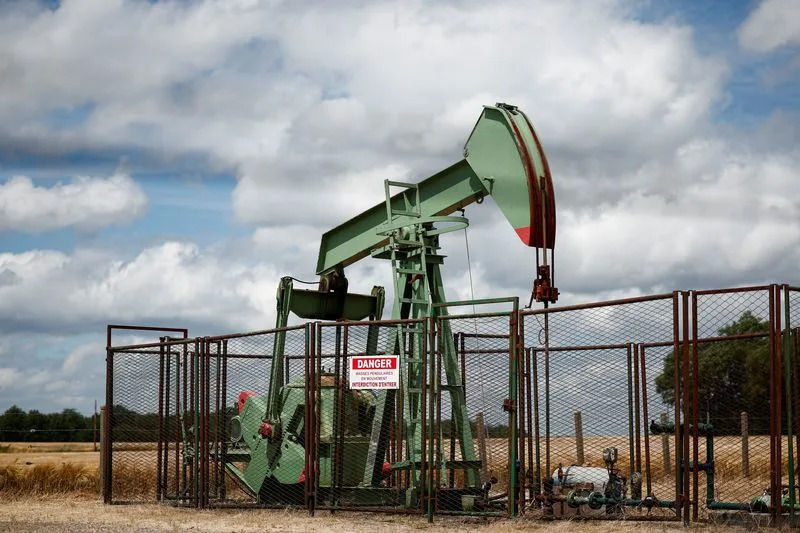Oil prices ease following weak economic data offset by higher US winter heating demand
New York, NEW YORK (Reuters) – Oil prices declined on Monday in volatile trade as bearish economic news from the United States and Germany offset bullish support from a weaker U.S. dollar and forecasts for increased heating demand due to a winter storm.
Brent and WTI Crude Prices Fall Despite Recent Gains
After rising for five consecutive days, Brent futures fell by 21 cents, or 0.3%, to settle at $76.30 a barrel, while U.S. West Texas Intermediate (WTI) crude declined by 40 cents, or 0.5%, to settle at $73.56. Despite these declines, both crude benchmarks remained in technically overbought territory for the third day in a row.
Bearish Economic News From the United States and Germany
On Friday, Brent settled at its highest level since October 14, and WTI closed at its highest level since October 11, partly due to expectations of more fiscal stimulus to revitalize China’s faltering economy. In recent weeks, interest in energy trade has grown significantly, with open interest in WTI futures on the New York Mercantile Exchange soaring to 1.933 million contracts on Friday, the most since June 2023.
Eurasia Group Analysis
Oil markets have entered 2025 with balanced supply-and-demand fundamentals but are being propped up by enduring geopolitical tensions, analysts at Eurasia Group said in a report. As the year progresses, oil markets will likely continue to experience low demand growth that may be outpaced by new supply, especially from the United States and OPEC.
New Orders for Manufactured Goods Fall in November
In the United States, new orders for manufactured goods fell in November due to weakness in demand for commercial aircraft while business spending on equipment appeared to have slowed in the fourth quarter, according to data from the Commerce Department’s Census Bureau. In Germany, Europe’s largest economy, annual inflation rose more than forecast in December due to higher food prices and a smaller drop in energy prices than in previous months.
Impact of Higher Inflation
To combat higher inflation, central banks often boost interest rates, which can slow economic growth and demand for energy. A weaker U.S. currency makes dollar-priced commodities like oil cheaper for buyers using other currencies.
Crude Prices Rally on Winter Storm and Weaker Dollar
Earlier in the day, crude prices rallied as a winter storm marches across the United States, causing prices for natural gas, a heating fuel, to spike 10% on Monday. Crude prices also gained ground earlier in the session on a 1.1% slump in the U.S. dollar against a basket of other currencies following a newspaper report that President-elect Donald Trump was mulling tariffs that would only be applied to critical imports.
Weaker Dollar Pares Decline
However, the dollar pared much of its decline after Trump denied the newspaper report. The weaker U.S. currency makes dollar-priced commodities like oil cheaper for buyers using other currencies. In China, the world’s second-biggest economy, the yuan ended the domestic session at its weakest level in 16 months against the U.S. dollar, weighed down by trade concerns.
Firmer Demand Expectations
In a sign of firmer demand expectations, Saudi Aramco, the world’s top oil exporter, raised crude prices for Asian buyers in February for the first time in three months. Sudan, meanwhile, lifted a nearly year-long force majeure on the transport of crude oil from its neighbor South Sudan to a port on the Red Sea after security conditions improved.
Conclusion
Oil prices eased in volatile trade on Monday amidst bearish economic news from the United States and Germany. Despite recent gains, both crude benchmarks remained in technically overbought territory for the third day in a row. The outlook for oil markets remains balanced with supply-and-demand fundamentals, but prices are being propped up by enduring geopolitical tensions.
Sources
Reporting by Scott DiSavino in New York and Ahmad Ghaddar in London; Additional reporting by Florence Tan and Siyi Liu in Singapore; Editing by David Goodman, Rod Nickel, Cynthia Osterman, and Mark Porter.



